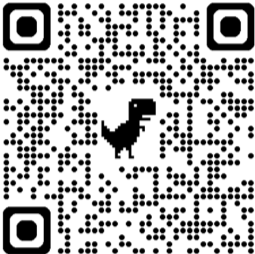Neuro Crossword Puzzle
By Daniel & Mariah
Create multiple-choice games on Wisc-Online and play them on our Chakalaka mobile app!
But that's not all! Explore educational games created by others. Simply search by category or enter agame code number and dive into a world of learning and fun.
Download the Chakalaka mobile app here:

Topics of this game:
- chronic progressive degenerative disease that affects the myelin sheath
- chronic autoimmune disease of the neuromuscular junction *hint "grave muscle weakness"
- unique sign/symptom only seen in Myasthenia Gravis
- caused by too much medication given to patients with MG, signs/symptoms: salivation, lacrimation, emesis, sweating, etc
- caused by too little medication given to patients with MG, signs/symptoms: ptosis, difficulty swallowing, difficulty speaking, dyspnea, weakness
- progressive, degenerative condition that affects motor neurons responsible for the control of voluntary muscles
- rare neuromuscular disease, inflammatory disorder characterized by abrupt onset of symmetrical paresis that progresses to paralysis
- disorder that involves the fifth cranial nerve, affects only the sensory portion of the nerve
- disorder that involves the seventh cranial nerve, nerve becomes inflames and edematous, causing interruption of nerve impulses
- disease has 3 stages, onset of symptoms, plateau, and recovery
- sense of smell
- sense of sight
- movement of eyeball/constriction of pupil for bright light or near vision
- sensation in the face, scalp, and teeth/contraction of chewing muscles
- sense of taste/contraction of facial muscles/secretion of saliva
- sense of hearing/sense of equilibrium
- sense of taste/secretion of saliva/sensory input for cardiac, respiratory, and blood pressure reflexes/contraction of pharynx, swallowing
- sensory input in cardiac, respiratory, and blood pressure reflexes/sensory and motor input to larynx (speaking)/decreased HR/swallowing, peristalsis
- contraction of neck and shoulder muscles/motor input to larynx (speaking)
- movement of tongue
- this division is dominant in stressful situations such as fear, anger, anxiety, excitement and exercise
- this division is dominant during relaxed, nonstressful situations to promote normal functioning of several organ systems
- detect stimuli and then transmit info about the stimuli to the CNS
- relay messages from the brain to the muscle or gland cells
- found only in the CNS/ connect incoming sensory pathways to outgoing motor pathways
User comments are currently unavailable. We apologize for the inconvenience and are working to restore this feature as soon as possible.

